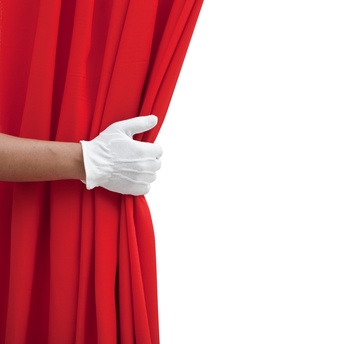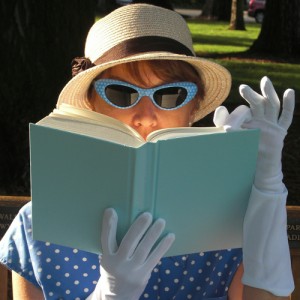Picture a world where magic is commonplace. Where people of all creeds and colors sing together in harmony. Where fun is had at any age, and food is plentiful, and everyone is merry and childlike and awestruck at least once a day.
That world exists.
It’s the world of Disney.
I recently watched Saving Mr. Banks on DVD. In case you haven’t seen the film, it’s the story of Walt Disney’s quest to purchase the movie rights to Mary Poppins. But the author, P. L. Travers, is a stubborn nut to crack, and doesn’t want to part with her creation. It takes years of wooing and convincing on Disney’s part, but finally the movie gets made. Oh, sure, there’s plenty of backstory revealing why Travers is the persnickety, repressed woman that she is, but those darker scenes are outweighed by the delightful world of Disney Studios, where scriptwriters and lyricists dance around like children (and Bradley Whitford waltzing in a goofy manner is reason enough to watch the film).
Anyway, it’s a delightful movie, and I was sharing my delight with a neighbor—let’s call her Chicken Little—who agreed. She lit up, and said, “Wouldn’t it be wonderful if we were all just a bit more reserved nowadays?” and then she deflated. “Oh, Diane, the world is going downhill.”
And I thought…really? What lens are you looking through?
But I wasn’t about to get into an argument with this woman. I wasn’t about to point out that Saving Mr. Banks is set in the early ‘60s, a time of rampant racism and the brewing of the Vietnam War and the uprising of women fed up being repressed. And before that, there were two world wars and poverty and prohibition and rationing and polio and tuberculosis and some guy named Jack the Ripper. There were men in white coats who carted you away in a straightjacket if you suffered a mental illness. There was the plague and beheadings and…well, you get my drift.
There were always frightful things afoot, but no immediate broadcasting throwing it into our faces 24/7.
I understand how Chicken Little came to adopt her particular viewpoint. She scours the internet daily, pouncing on scary, negative stories that will back up her vision of a world in decline. Through the mail she receives angry, doomsday missives from her political party. She seeks out people who hold similar negative views, and together they chew on the gristle of their dissatisfaction.
But what about the wonderfulness of the universe? It’s there, too. We might not live in a Disney world, but it’s not skidding into skid row, either, regardless of what our elected officials may spout. And while it’s important to be aware of what’s occurring around us—even the horrendous stuff—if we are unable to personally change it for the better, isn’t it best to focus on all that is good? And in so doing, expand that goodness?
Just as Disney created his own playground of the mind (and a literal one for all of us to scamper in), Chicken Little creates the world she believes in.
So I write this for the Chicken Little in us all:
Where do you aim your lens? Do you focus on the fearful tales that the media highlights? Do you dwell on the people in your life who are grit under your eyelids? Do you rehash the mistakes you’ve made?
Or do you see the possibility in every human being you encounter? Do you remember the times you triumphed? Do you speak uplifting words? Do you find humor in the craziness?
Where do you aim your lens?
Because you have a choice. You are the director of your life. You are the producer and the writer and the actor. You have a choice of whether to live in a drama or comedy or romance or fantasy or action-adventure or cartoon. And if you suffer abuse or unemployment or a life-threatening illness, or mental, physical, or spiritual pain of any kind, then you need to sharpen your focus on something joyful. You need to remember: above the clouds, the sun is always shining.
It’s not easy. Our thoughts are squirrelly things.
But I do believe it’s necessary. For the sanity of ourselves and our planet.
So let’s ask ourselves, periodically, throughout the day: Where am I aiming my lens? What view, of all the views in this buffet of life, am I choosing to focus upon?
And choose the uplifting one.



